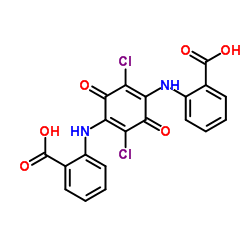| Structure | Name/CAS No. | Articles |
|---|---|---|
 |
ec 2.7.3.2
CAS:9001-15-4 |
|
 |
GLUTACONIC ACID
CAS:628-48-8 |
|
 |
trans-Glutaconic acid
CAS:1724-02-3 |